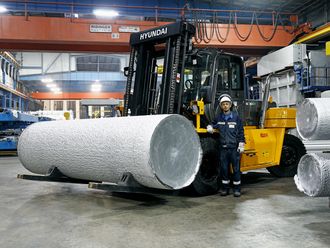Dubai: Apart from a sustained surge in local sales, Dubai's automobile re-exports staged a quick turn-around through most of last year, rising to Dh9 billion and putting them on par with the pre-crisis levels of 2008.
The bulk of these re-exports were destined for neighbouring markets along with Iraq, Iran, Libya and Saudi Arabia. With the situation in two of these markets hit by strife and UN sanctions, re-export volumes from Dubai could take a serious hit this year, according to industry sources.
Vehicle shipments to Iran recorded sharp value gains in the two years leading up to 2008, then went through a precipitous drop in 2009 and staged a minor recovery in 2010.
"On the other hand, the trend of re-exports to Libya was very different from what was expected," said a report issued by the Dubai Chamber of Commerce and Industry. "The value dropped significantly in 2007, followed by continuous growth that peaked in 2009.
Volatile
"The value, however, dropped again in 2010. The recent unrest in the country is expected to pull the figure down significantly in 2011."
Shipment volumes to Saudi Arabia were more volatile in comparison, with 2009 accounting for nearly Dh1 billion, a 244 per cent growth over 2008. But last year demand was 20 per cent lower.
Iraq remains Dubai's largest automobile re-export market, with year-on-year value gains after a slight dip in 2006. In 2008, the value was up a robust 155 per cent over 2007 and continued on this trajectory even during the height of the global crisis in 2009.
Meanwhile, Dubai's total vehicle imports rose to Dh20 billion, a 33 per cent year-on-year increase last year.
Modest rates
"Despite some deviations, a slightly rising trend could be noted in imports from Japan until January 2011," said the Chamber of Commerce and Industry report.
"However, the earthquake that hit the country led to a significant drop in exports of vehicles in March. This situation is expected to narrow down Dubai's imports from the country.
"With imports from Japan expected to go down in the succeeding months, a shift to the other countries could lead to increases, though these are still expected to be at modest rates."











